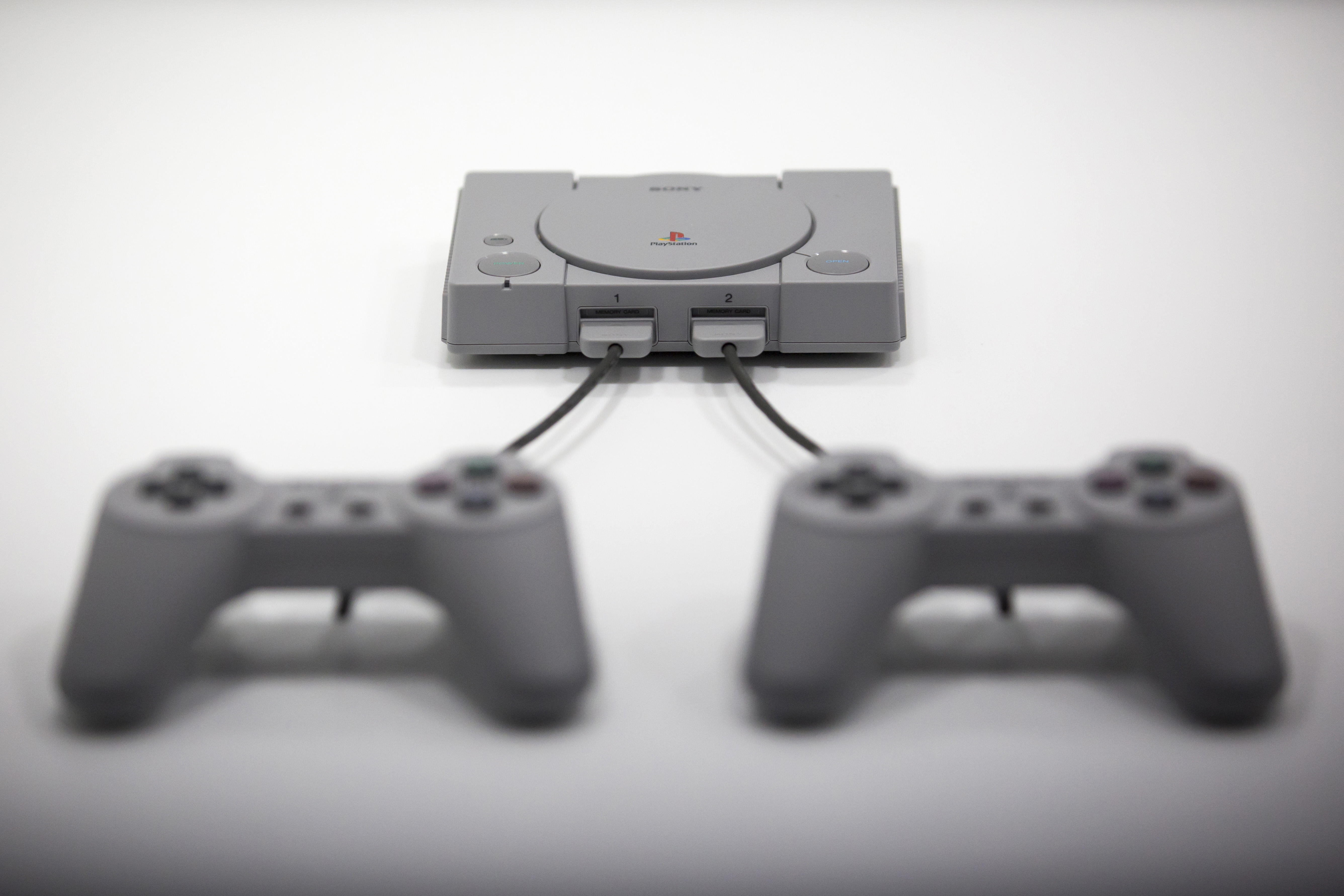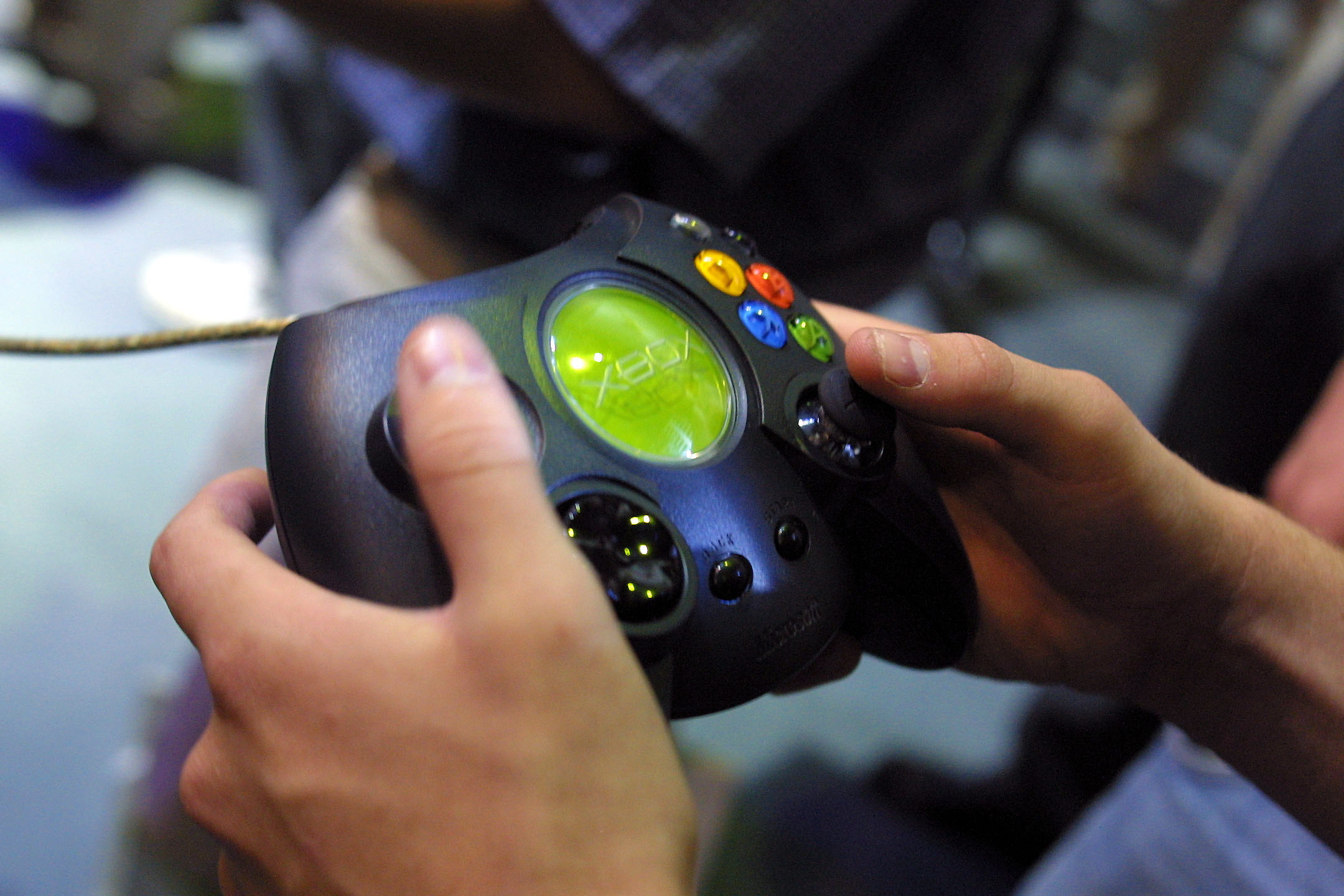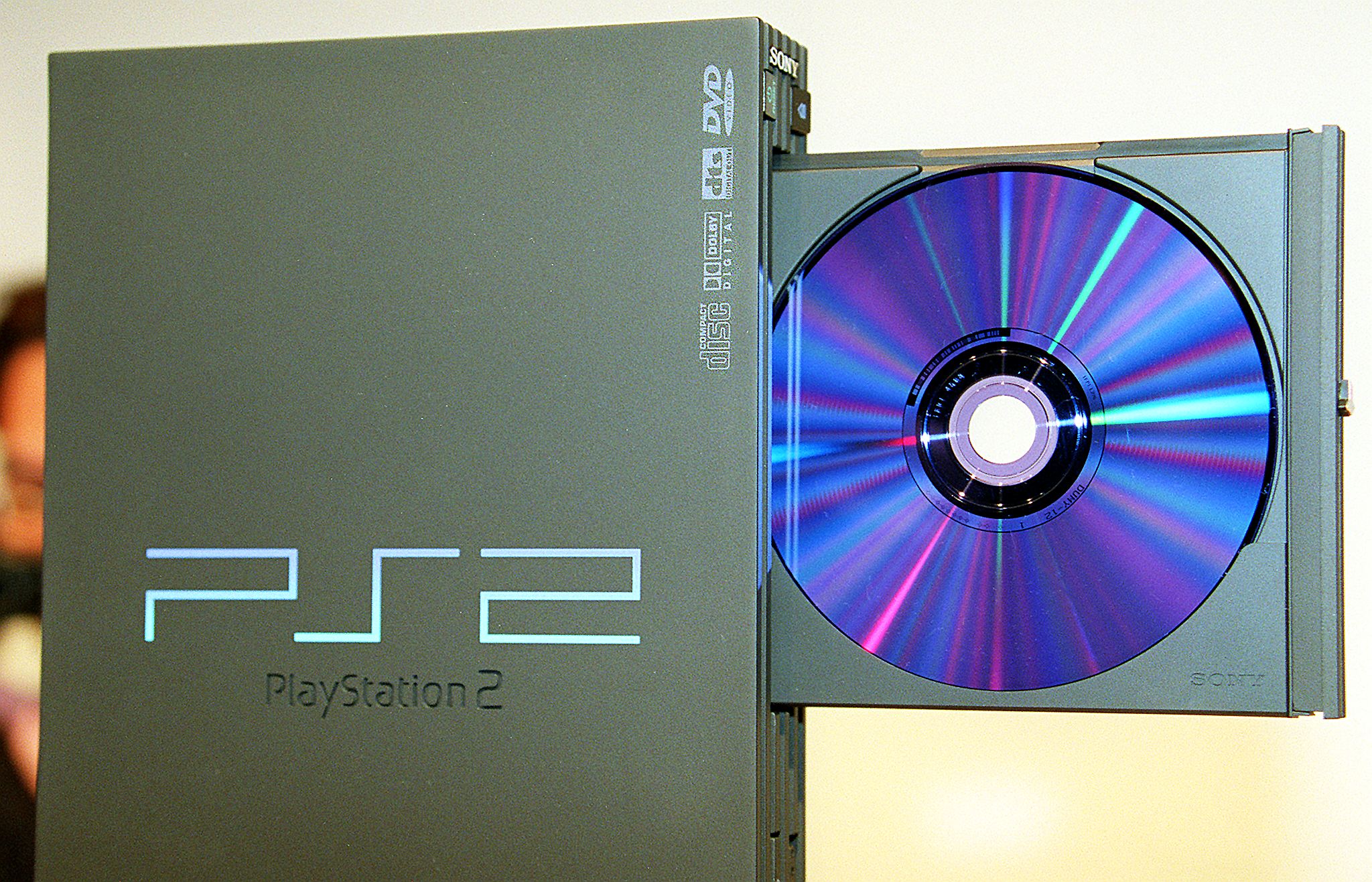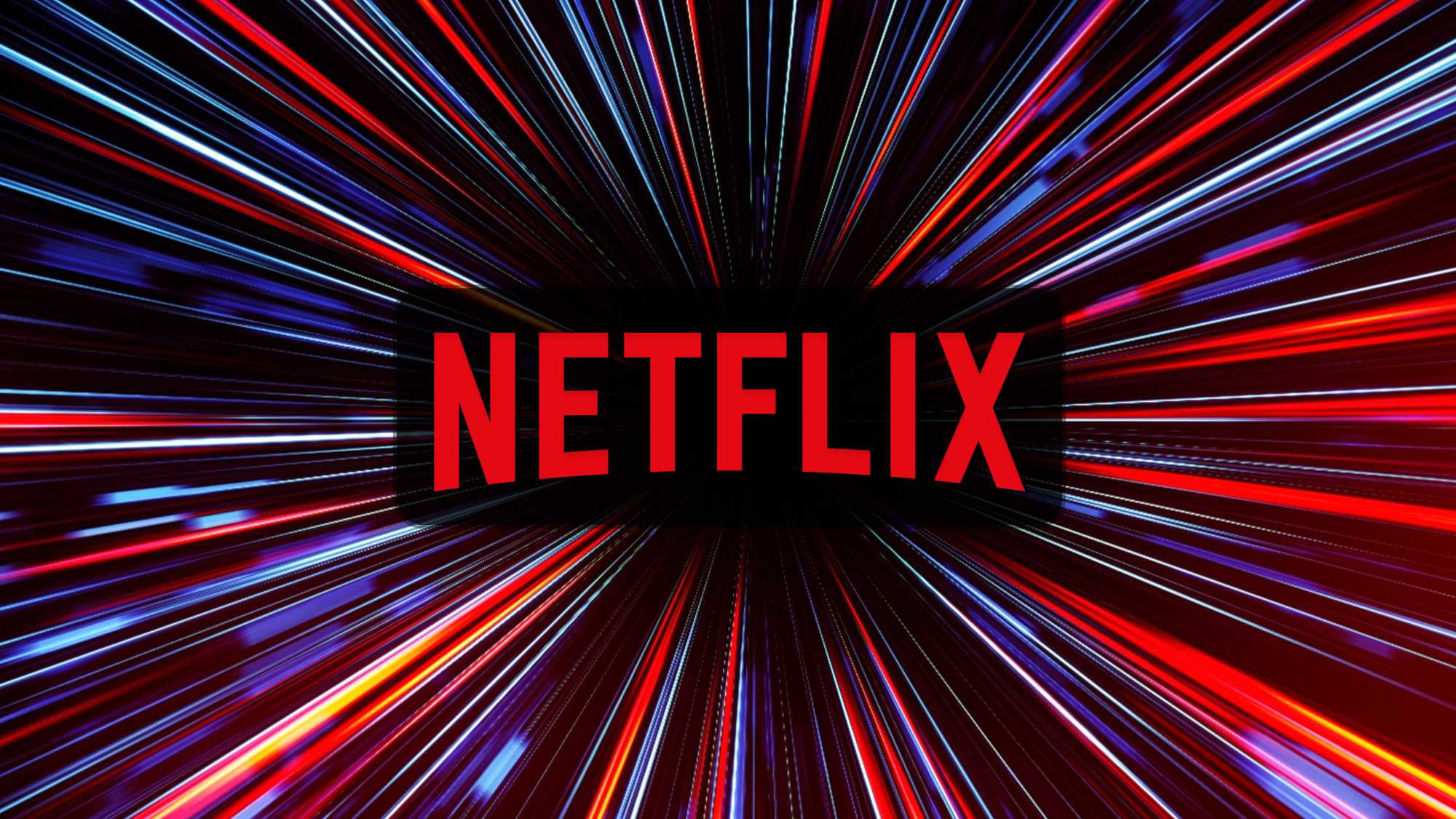PS5 and Xbox Series X backwards compatibility is going to let us all down
Backwards compatibility means something very different to Sony and Microsoft

Here at Tom’s Guide our expert editors are committed to bringing you the best news, reviews and guides to help you stay informed and ahead of the curve!
You are now subscribed
Your newsletter sign-up was successful
Want to add more newsletters?

Daily (Mon-Sun)
Tom's Guide Daily
Sign up to get the latest updates on all of your favorite content! From cutting-edge tech news and the hottest streaming buzz to unbeatable deals on the best products and in-depth reviews, we’ve got you covered.

Weekly on Thursday
Tom's AI Guide
Be AI savvy with your weekly newsletter summing up all the biggest AI news you need to know. Plus, analysis from our AI editor and tips on how to use the latest AI tools!

Weekly on Friday
Tom's iGuide
Unlock the vast world of Apple news straight to your inbox. With coverage on everything from exciting product launches to essential software updates, this is your go-to source for the latest updates on all the best Apple content.

Weekly on Monday
Tom's Streaming Guide
Our weekly newsletter is expertly crafted to immerse you in the world of streaming. Stay updated on the latest releases and our top recommendations across your favorite streaming platforms.
Join the club
Get full access to premium articles, exclusive features and a growing list of member rewards.
These days, the words "game preservation" tend to be thrown around quite a lot. That's for good reason — it's never been more important.
With digital sales continuing to choke the physical-game market, we run the risk of losing titles to the ether once they've been delisted. Even holding onto your own personal library of games is more laborious than it should be, as anyone who's ever had to sift through their Xbox Live or PSN back catalog of purchases is keenly aware.
- Everything we know about the PS5 DualSense controller
- Forget PS5: Why I’m sticking with my gaming PC
- Plus: What you need to know about NBC Peacock TV, the latest streaming service
And then there's the issue of continuing to play those games, which is often impossible without the original hardware. Even if you've held onto your old consoles, getting them to work satisfactorily with modern TVs is its own expensive exercise in frustration.
While Microsoft's official position is that anything that runs on Xbox One will also run on the upcoming Xbox Series X, Sony’s been inconsistent in its messaging around its own PS5. The company’s latest line is that its next system will support “an overwhelming majority” of the PS4’s library, but it’ll also have to test “thousands more” titles between now and launch to guarantee that.
That's disappointing for those of us who grew up with a very different definition of backwards compatibility. We expected that we could toss that old copy of Final Fantasy VII into our PS2s and pick up right where we left off — with the very same memory card, no less. Or the peace of mind we got knowing that in lieu of a Nintendo GameCube, a Wii was a perfectly good stand-in for an impromptu F-Zero GX showdown between you and a few friends.
The truth is that gaming consoles will never be truly backwards compatible again — at least not in the way we would want them to be. That's a shame, but it's also inevitable. The back history of this medium has become too long to fully support, and the technological evolution with each new generation of consoles has made it progressively harder to carry the old forward, even as hardware makers do what they can.
Nevertheless, that's why Microsoft's claim that the Xbox Series X will support "four generations" of games rings hollow. Technically, it's not an incorrect statement, but it is a misleading one, and it's loaded with caveats.
Get instant access to breaking news, the hottest reviews, great deals and helpful tips.
The Xbox Series X will run those few classic Xbox titles that Microsoft has hand-selected over thousands of options. Judging from what we know about the PS5, it appears Sony will continue to lean on PlayStation Now game streaming to deliver pre-PS4 content on PS5. While we shouldn't ignore the work both companies are doing just to ensure that even those lucky few games get to live on, it's also wrong to call it backwards compatibility. Backwards compatibility, as we once knew it, is dead.
Anything but plug-and-play
The Xbox Series X and the PS5, like the Xbox One and the PS4 before them, will be built on x86-64 architecture. Most modern PCs, of course, are x86 systems too. Theoretically, that should mean that content developed for one wouldn't be terribly hard to port to or emulate on another, though it's never quite that simple.
That's not taking account of the preceding three decades of console gaming, when hardware was wildly unique and consoles shared no common instruction set. The Xbox 360 and PS3 were founded upon PowerPC architecture, which doesn't jibe with the AMD Jaguar basis of today's platforms. The PS5 and Xbox Series X will even employ similar AMD RDNA GPUs.
As a result, there's a lot of work that goes into ensuring an Xbox 360 or original Xbox title can run on an Xbox One — much more, it seems, than will be required to run Xbox One titles on Xbox Series X. While Microsoft typically doesn't mess with each game's code to enforce compatibility, Xbox engineers are required to make tweaks to the Xbox One's emulation suite game-by-game.
I won't get into the particulars here, because Eurogamer's Richard Leadbetter has already done that in stunning detail. I suggest you read that story to fully understand Microsoft's process, but if you don't, just know this: It's not exactly like loading a Genesis ROM on your RetroPie.
The Xbox One does incorporate some general-purpose tools that all legacy titles benefit from, but in addition to that, the Xbox team still has to investigate how every game was built and individually tailor the system environment to those titles to meet its quality standards. This is exactly how newer Xbox hardware is able to run generations-old games at many times their original resolutions.

Xbox's piecemeal backwards compatibility is admirable, but it misses the point — no one game should be more worthy of preservation than any other.
"We have to go through each game and measure how [textures are delivered]," Xbox Platform Lead Bill Stillwell, told Eurogamer. "Especially as we're in a situation where because we're using higher render assets, and because we're doing that 9x resolution increase (3x on each axis), we have to be able to manipulate what assets are shown at what geometry, so that we get the same or better performance with the higher resolution textures."
This kind of reverse engineering sounds like an extraordinarily arduous process, but it gets results. Consider what the Xbox team was able to do with cult classics like Ninja Gaiden Black and Panzer Dragoon Orta. Today these games are more than 15 years old, and yet you can still enjoy them on Xbox One X at pixel-perfect 4K resolution, with performance and visual bumps in some places, as well as reduced load times. Better yet, all you need is the original disc. (Both these titles are also sold on the Xbox Marketplace too, for what it's worth.)
Not going far enough
Microsoft should be commended for the steps it has taken to ensure gamers can continue to enjoy some of these beloved titles, and especially for its work on those Xbox One X Enhanced editions in particular.
However, the company's commitment to the craft is also maddening — both because pouring gobs of time into punching up individual titles is unsustainable, and because it's at odds with what was once a core tenet of backwards compatibility: The idea that no one game should be deemed more worthy of preservation than any other.
OK, yes — Super Mario 64 is several orders of magnitude more influential than Snowboard Kids. But the beauty of old-school backwards compatibility was that that didn't matter. It wasn't up to a hardware maker or publisher to decide which games deserved the most attention. Precedence wasn't granted to first-party titles, or to titles that had a clear business case on their side — or better yet, could be resold.

It didn't matter what executives thought, either. Racing game fan that I am, I'll forever be haunted by a quote from Sony's Jim Ryan about three years ago.
"I was at a Gran Turismo event recently where they had PS1, PS2, PS3 and PS4 games," Ryan told Time, "and the PS1 and the PS2 games, they looked ancient, like why would anybody play this?"
If I had a chance to speak with Ryan, I might have told him that the first Gran Turismo was the best-selling game on the original PlayStation. Or that Gran Turismo 2 remains the lone entry in the series to include a minivan with a Formula 1 engine, thereby irrefutably making it the best.
The fact that there's a new Gran Turismo on the PS4, with the most realistic physics and graphics to date, is totally irrelevant. You may never understand why someone cherishes a certain game that you don't — you simply have to accept that they do.
More than 600 original Xbox and Xbox 360 games are playable on Xbox One, but only one of them is a Forza title — the first Forza Horizon, as a matter of fact. My dream of seeing at least one Project Gotham Racing iteration rendered playable on a modern Xbox will likely never come to pass, given that Microsoft announced it was suspending work on pre-Xbox One titles roughly a year ago.
Perhaps car licenses have something to do with it, or perhaps with Forza Horizon 4 and Forza Motorsport 7 available on Xbox One, the company never saw the value in resurrecting its old racers.
The dream is dead
There's just no happy ending here. The backwards compatibility we used to enjoy, where a system's entire library was accessible on next-gen hardware, just isn't possible on the Xbox Series X and PS5 — or, at least not with the approach Microsoft and Sony have taken.
For example, the original PS2 was able to support 99% of the PS1's almost 1,500 games released in North America because it physically had the PS1's processor built in; it's the same reason why some PS3 models support PS2 titles. The CPU inside the Wii was essentially the same as the GameCube's, only faster, making broad backwards compatibility a snap for that console as well.
I can understand stuffing a PS2 inside every PS5 probably isn't financially prudent for Sony. Nevertheless, it's become exhausting to repeatedly watch hardware makers refer to backwards compatibility in abstract terms — the idea that a specific old game could be playable on a future machine, once that machine receives a software update and can support it — all the while knowing full well that their audience thinks of backwards compatibility in a very different way. Perhaps it's time we find another word for it.
Adam Ismail is a staff writer at Jalopnik and previously worked on Tom's Guide covering smartphones, car tech and gaming. His love for all things mobile began with the original Motorola Droid; since then he’s owned a variety of Android and iOS-powered handsets, refusing to stay loyal to one platform. His work has also appeared on Digital Trends and GTPlanet. When he’s not fiddling with the latest devices, he’s at an indie pop show, recording a podcast or playing Sega Dreamcast.
 Club Benefits
Club Benefits










